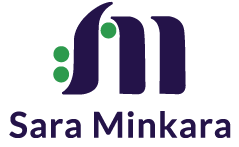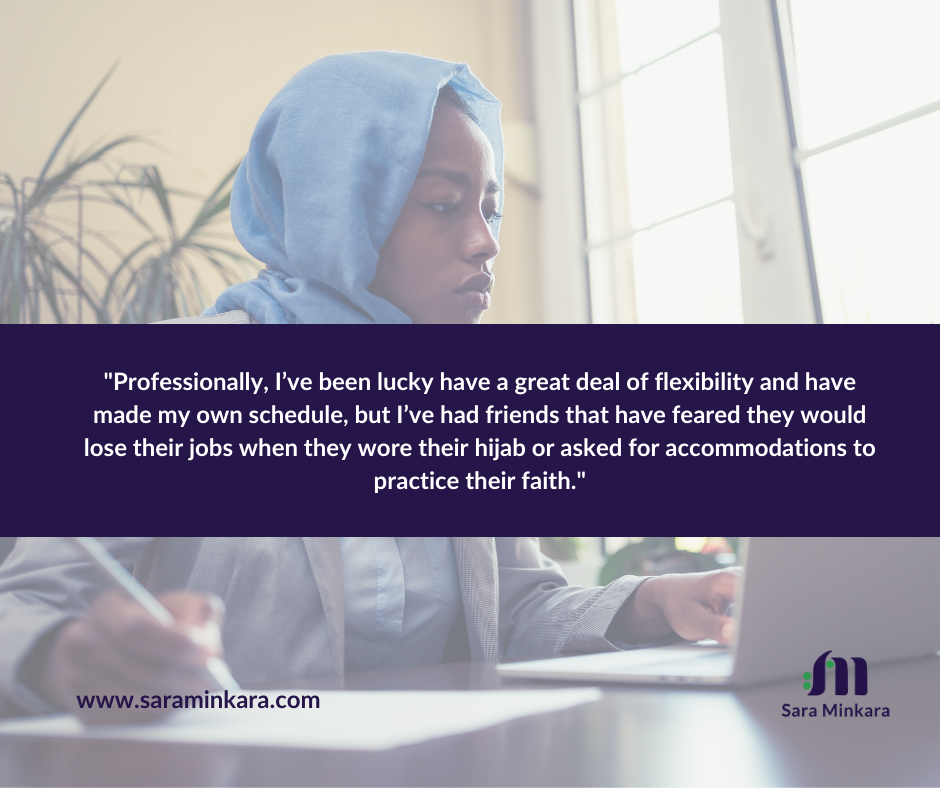Supporting Muslims in the Workplace Throughout Ramadan and Beyond
Do you have a deep faith? So do I. Are you proud of your family narrative? Me too! Are you a first-generation America? As am I! Were your parents immigrants? Mine were too! We are more alike than different!
Since September 11th, Muslims in America have faced unprecedented amounts of discrimination. The EEOC reports a 250% increase in the number of religion-based discrimination charges involving Muslims. In fact, more than 39% of Americans believe that Muslims in America should be subject to more scrutiny than people of other religions. This hurtful discrimination has been extended towards Sikhs, or persons of Arab, Middle Eastern or South Asian descent, as well as persons perceived to be members of these groups. While the discrimination and xenophobia has subsided since 9/11, it is still prevalent in our world today.
CAIR define Islamophobia as “a closed-minded hatred, fear or prejudice toward Islam and Muslims that results in discrimination, marginalization and oppression. It creates a distorted understanding of Islam and Muslims and transforms diversity in name, language, culture, ethnicity, and race into a set of stereotyped characteristics.”
As Muslims begin the holy month of Ramadan (April 13 – May 12, 2021), I challenge employers to be curious with a compassionate lens. Ask questions in order to understand and providing space for your team members to practice their faith through prayer. Ramadan is a time of spiritual reflection, prayer, and fasting. It is heart breaking to see fellow Muslims forfeit asking for accommodations due to fear that they might be judged by others or even worse, lose their job.
While Title VII of the Civil Rights Act of 1964 entitles all employees to reasonable religious accommodations by their employer to practice their faith, the act does include the clause that says “unless it would pose an undue hardship” for the employer. If an employer is dedicated to their team members and sees value in their diversity, there are feasible ways to accommodate their employees.
Becoming familiar with Islamic practices, dress codes, and asking how you can accommodate are all great steps. The Council on American Islamic Relations (CAIR), , published a document titled “An Employer’s Guide to Islamic Religious Practices,” to help employers devise and implement policies that can create a culturally sensitive working environment.
Professionally, I’ve been lucky have a great deal of flexibility and have made my own schedule, but I’ve had friends that have feared they would lose their jobs when they wore their hijab or asked for accommodations to practice their faith. My freedom also doesn’t forgo the responsibility of creating a space where my own staff feel comfortable to request accommodations if needed. It is our job both as employers and employees to create spaces where people feel comfortable bringing forward their true selves and support others who are authentic.
Please reference the 2020 CAIR guide on how you can create a more inclusive space for your Muslim employees, not just for Ramadan, but year-round!


